寛彦(KuanYan)本村安彦
日本的大眾媒體忽視了這個問題。在日本,新聞界根本沒有洩露給新聞界。
這種憲法的日本惡毒新聞早就一直在繼續。這對西方對美國,英國和法國人民在西方的禍害表現出很大的反應。但另一方面,看不起亞洲人的日本人。那個日本的醜陋的身影就是證明日本人不想“解決緬甸羅興亞人口”的問題。(日本的大众媒体忽视了这个问题。在日本,新闻界根本没有泄露给新闻界。
这种宪法的日本恶毒新闻早就一直在继续。这对西方对美国,英国和法国人民在西方的祸害表现出很大的反应。但另一方面,看不起亚洲人的日本人。那个日本丑恶的人物就是证明日本人不想“解决缅甸罗兴亚人口”的问题。)日本的大眾媒體卻忽略了這個問題。在日本,它並沒有被洩露給所有的新聞媒體。
日本憲法的無良新聞跟隨這麼長的時間。這表明在美國和歐洲的悲劇大反應,例如美國和英國和法國。但在另一方面,日本瞧不起亞洲。它外形醜陋的日本人是什麼,日本是你不想要一個“問題解決”緬甸羅興亞族人口之事的確據“。”(日本的大众媒体却忽略了这个问题。在日本,它并没有被泄露给所有的新闻媒体。
日本宪法的无良新闻跟随这么长的时间。这表明在美国和欧洲的悲剧大反应,例如美国和英国和法国。但在另一方面,日本瞧不起亚洲。它外形丑陋的日本人是什么,日本是你不想要一个“问题解决”缅甸罗兴亚族人口之事的确据“”)/The mass media in Japan ignores this problem. In Japan, the press has not been leaked to the press at all.
Japanese vicious journalism of such a constitution that has been continuing since long ago. It shows a big reaction to the scourge in the West to the American, British & French people in the West. But on the other hand, Japanese who looks down on Asians. That Japanese ugly figure is the proof that the Japanese does not want "solving the problem of" Myanmar's Rohingya population "./Средства массовой информации в Японии игнорируют эту проблему. В Японии пресса вообще не просочилась в прессу.
Японская жестокая журналистика такой конституции, которая продолжается уже давно. Это показывает большую реакцию на бедствие на Западе американскому, британскому и французскому народу на Западе. Но, с другой стороны, японцы, которые смотрят на азиатов. Эта японская уродливая фигура является доказательством того, что японцы не хотят «решать проблему» населения Мьянмы в Рохинге.(Средства массовой информации в Японии игнорирует эту проблему. В Японии, пресса не просочилась в прессу вообще.
Японская порочная публицистика такой конституции, которая продолжается уже давно. Это показывает большую реакцию на бедствия на Западе к американским, британским и французским людям на Западе. Но с другой стороны, японская, который смотрит вниз на азиатах . это японская некрасиво цифра является доказательство того, что японцы не хотят «решить проблему» рохингие населения Мьянмы».
СМИ Японии игнорируют эту проблему. В Японии это не просочились все средства массовой информации.
Недобросовестная публицистика японской конституции, а затем такое долгое время. Это показывает большую реакцию на трагедию в США и Европе для таких американцев и англичан и французов. Но с другой стороны, японцы смотрят на азиатских. Его уродливый внешний вид японцев, что, японский является свидетельством вещей, которые вы не хотите «решение проблем» Мьянма Рохингие населения «»)/일본의 대중 매체는이 문제를 무시합니다. 일본에서는 기자가 언론에 누출되지 않았습니다.
오래 전부터 계속되고있는 그러한 헌법에 대한 일본의 악의적 인 저널리즘. 그것은 서구의 미국, 영국 및 프랑스 사람들에 대한 서양의 채찍에 큰 반응을 보입니다. 그러나 반면에, 아시아 인을 내려다 보는 일본인. 그 일본인 추한 인물은 일본인이 "미얀마의 로힝 겐 야 인구"문제를 해결하기를 원치 않는다는 증거이다.(일본 언론은이 문제를 무시하고 있습니다. 일본에서는 언론이 전혀 보도에 누수되지 않는다.
이러한 예로부터 이어져있는 체질의 일본인의 악덕 저널리즘. 미국인이나 영국인 및 프랑스 등에 대한 서양의 참극에 대해 큰 반응을 나타낸다. 그러나 그 반면 아시아 인을 멸시하는 일본인. 일본인의 추악한 모습 이야말로 일본인은 ""Myanmar 's Rohingya population "문제 해결"을 원치 않는 것의 증거입니다.)/Các phương tiện thông tin đại chúng ở Nhật Bản bỏ qua vấn đề này. Ở Nhật Bản, báo chí đã không bị rò rỉ trước báo giới.
Nhật báo chí hăng hái về hiến pháp như vậy đã được tiếp tục từ lâu trước đây. Nó cho thấy một phản ứng lớn đối với vụ tai tiếng ở phương Tây đối với người Mỹ, Anh và Pháp ở phương Tây. Nhưng mặt khác, người Nhật nhìn xuống người châu Á. Con số xấu xí của Nhật Bản là bằng chứng cho thấy người Nhật không muốn "giải quyết vấn đề" dân số Rohingya của Myanmar ".(phương tiện truyền thông đại chúng của Nhật Bản đã bỏ qua vấn đề này. Tại Nhật Bản, nó đã không được tiết lộ cho tất cả các phương tiện truyền thông tin tức.
báo chí vô đạo đức của hiến pháp Nhật Bản sau đó một thời gian dài như vậy. Nó cho thấy một phản ứng lớn đến thảm kịch ở Mỹ và châu Âu cho người Mỹ như vậy và người Anh và tiếng Pháp. Nhưng mặt khác, người Nhật coi thường châu Á. diện mạo xấu xí của người Nhật những gì, Nhật Bản là bằng chứng về những thứ bạn không muốn có một "giải quyết vấn đề" của Myanmar Rohingya dân "")/Ang mass media sa Japan pinapansin ang problemang ito. Sa Japan, ang press ay hindi pa leaked sa pindutin sa lahat.
Hapon malupit na journalism ng naturang saligang batas na na-patuloy na mula noong matagal na ang nakalipas. Ito ay nagpapakita ng isang malaking reaksyon sa talas sa West sa American, British at Pranses mga tao sa West. Ngunit sa kabilang banda, Japanese na humaharap na palusong sa mga Asyano. Iyon Hapon pangit figure ay ang patunay na ang mga Hapon ayaw "paglutas ng problema ng" Rohingya populasyon ng Myanmar ".(mass media ng Japan ay hindi pinansin ang problemang ito. Sa bansang Hapon, ito ay hindi na-leaked sa lahat ng mga balita ng media.
Walang prinsipyo journalism ng Japanese saligang batas na sumunod tulad ng isang mahabang panahon. Ito ay nagpapakita ng isang malaking reaksyon sa trahedya sa US at Europa para sa mga naturang Amerikano at ang British at Pranses. Ngunit sa kabilang banda, Japanese hamakin ang mga Asyano. Nito pangit na anyo ng Japanese ano, Japanese ay ang katibayan ng mga bagay na hindi mo nais ang isang "problema-paglutas ng" populasyon ng Myanmar Rohingya ".")/
وتتجاهل وسائل الإعلام في اليابان هذه المشكلة. وفي اليابان، لم تسرب الصحافة إلى الصحافة على الإطلاق.
الصحافة اليابانية المفرغة لهذا الدستور الذي استمر منذ فترة طويلة. وهو يظهر رد فعل كبير على الآفة في الغرب للشعب الأمريكي والبريطاني والفرنسي في الغرب. ولكن من ناحية أخرى، اليابانية الذي ينظر إلى أسفل على الآسيويين. هذا الرقم القبيح الياباني هو دليل على أن اليابانيين لا يريدون "حل مشكلة" سكان الروهينجا ميانمار ".
(
وسائل الإعلام اليابانية تجاهلت هذه المشكلة. في اليابان، لم تسربت إلى جميع وسائل الإعلام.
الصحافة عديمي الضمير من الدستور الياباني الذي أعقب مثل هذا الوقت الطويل. ويظهر رد فعل كبير للمأساة في الولايات المتحدة وأوروبا لهذا الأمريكيين والبريطانيين والفرنسيين. ولكن من ناحية أخرى، اليابانية تطل على آسيا. مظهره القبيح من اليابانيين ما، هي اليابانية الأدلة من الأشياء التي لا تريد سكان "حل المشكلة" ميانمار الروهينجا "."
)
/()/()/()/()//日本のマスメディアはこの問題を無視しています。日本では、マスコミがまったく報道にリークされていない。
このような昔からつづいている体質の日本人の悪徳ジャーナリズム。アメリカ人やイギリス人&フランス人などに対する欧米での惨劇に対しては大きな反応を示す。しかしその一方、アジア人を見下す日本人。日本人のその醜い姿こそ、日本人は「”Myanmar's Rohingya population”の問題解決」を望んでいないことの証左です。
>>Shahariar ImamさんがEuronews Englishさんの投稿をシェアしました。
>>19時間前
..
>>BURMA IS A BUDHIST TERRORIST COUNTRY EU/EC KNOWS IT.
>>Euronews English
>>6月9日 22:47
.
>>As the UN investigate possible 'crimes against humanity' perpetrated against Myanmar's Rohingya population, Euronews visits those who have fled to neighbouring Bangladesh. #AidZone
https://www.facebook.com/euronews/posts/10155038121383110

The Rohingya, a Muslim minority in Myanmar are potentially victims of crimes against humanity according to top UN officials.
Seventy four thousand of them have crossed the border into Bangladesh since last October following a violent military crackdown in the wake of a deadly attack on an army post.
Kutupalong is the biggest refugee camp in South East Bangladesh. The registered camp and the makeshift camp stand side by side. The latter hosts over 66,000 people, the so called “Undocumented Myanmar Nationals”. The vast majority are Rohingya who have been denied refugee status.
Fifteen-year-old Zannat is among them. She arrived three months ago. Married at 13, she told us she was raped by Burmese soldiers when she was pregnant.
“The military came to my place and they took my husband. That evening they came to take me as well,” Zannat told our reporter. “They brought me to the bush and around five, six, seven soldiers raped me”.
“I feel very bad that many people have been killed by the soldiers. I feel very bad because many muslims have been tortured and killed in front of us. Many people”.
Zannat’s story is all too familiar. Bangladesh insists that the Rohingya should stay in the country only temporarily, but many have been there for decades. Last year the World Food Programme managed to open a nutrition centre funded by EU Humanitarian Aid. Zannat’s baby goes there regularly.
We met up with Mohammad Ashikulla, a senior nutrition programme assistant with the World Food Programme (WFP). He explained, “In this center we have around 7,000 six to 59 month-old children, and around 1,390 pregnant and lactating women. Since October we have seen a 40 percent increase in the regular daily beneficiaries”.
Babies are measured and weighed once a month. Their mothers are also given super cereals with vitamins to combat malnourishment. The other residents of the makeshift camp receive food by distribution, while in the nearby official camp registered refugees receive e-cards. The aim is to harmonize the assistance offered.
A pressing problem is not only food, but also access to healthcare. We drove from Kutupalong to Leda, next to the river Naf which is the geographical border between Bangladesh and Myanmar.
An IOM (International Organisation for Migration) clinic opened near the makeshift camp last October thanks to European funds. It soon became a referral hub seeing over 5,000 patients per month. We took a tour with Dr Mohiuddin Khan, an IOM health officer. We started with the emergency centre.
“We can handle all sorts of emergency cases through this center, we can refer them to the high level center instantly. This is the disability prevention and rehabilitation corner of this facility,” said Dr Mohiuddin Khan. “The clients are coming from the makeshift settlement. This is the laboratory; we provide very basic but very comprehensive range of laboratory services”.
Euronews’ Monica Pinna asked: “What did patients have to do before this clinic was built?” Dr Mohiuddin Khan told her: “They had to travel around, at least 40 kilometers to access laboratory services”.
In the clinic we met Mohammed Nurul Islam. He broke his arm last December while fleeing his village as it was being attacked by Burmese soldiers. He came to Bangladesh straight away and was operated on. Now he is doing a follow-up examination. Mohammed lost five members of his family in October, including two daughters, brothers and sisters.
“I saw many incidents happening in front of my eyes. I saw people abducted, I saw gang rapes, children thrown onto fires and killed,” Mohammed revealed. “My village was burnt. Being Rohingya muslims, we want our recognition and then our nationality and then peace in our villages. I don’t want to live here, I want to go back”.
We asked Pierre Prakash, a representative from EU Humanitarian Aid, if the recent spate of violence had changed the way Bangladesh hosts the Rohingya, who, even in Myanmar have no citizenship.
“Despite being one of the poorest countries in the world, in the region, and having many problems of its own, Bangladesh has let these people stay on its soil, explained Pierre. “Nevertheless it doesn’t have the means to deal with the humanitarian situation here. It doesn’t have the resources and therefore it’s very important that the international community is present. The people you see around us are 100 percent dependent on humanitarian assistance.”
Euronews – Monica Pinna
“So what’s the next step? What needs to be done?”
EU Humanitarian Aid -Pierre Prakash
“Obviously humanitarian assistance on its own is not a long term solution, and there is a need for a long term solution for this crisis, but the solution can only come from political willingness to deal with the problem, mostly from the other side of the border, in Myanmar, where these people keep fleeing to this side of the border”.
On the other side of the river Naf, Myanmar denies access to the media and has limited humanitarian activities, while the United Nations (UN) is investigating alleged ethnic cleansing.
日本的大眾媒體忽視了這個問題。在日本,新聞界根本沒有洩露給新聞界。
這種憲法的日本惡毒新聞早就一直在繼續。這對西方對美國,英國和法國人民在西方的禍害表現出很大的反應。但另一方面,看不起亞洲人的日本人。那個日本的醜陋的身影就是證明日本人不想“解決緬甸羅興亞人口”的問題。(日本的大众媒体忽视了这个问题。在日本,新闻界根本没有泄露给新闻界。
这种宪法的日本恶毒新闻早就一直在继续。这对西方对美国,英国和法国人民在西方的祸害表现出很大的反应。但另一方面,看不起亚洲人的日本人。那个日本丑恶的人物就是证明日本人不想“解决缅甸罗兴亚人口”的问题。)日本的大眾媒體卻忽略了這個問題。在日本,它並沒有被洩露給所有的新聞媒體。
日本憲法的無良新聞跟隨這麼長的時間。這表明在美國和歐洲的悲劇大反應,例如美國和英國和法國。但在另一方面,日本瞧不起亞洲。它外形醜陋的日本人是什麼,日本是你不想要一個“問題解決”緬甸羅興亞族人口之事的確據“。”(日本的大众媒体却忽略了这个问题。在日本,它并没有被泄露给所有的新闻媒体。
日本宪法的无良新闻跟随这么长的时间。这表明在美国和欧洲的悲剧大反应,例如美国和英国和法国。但在另一方面,日本瞧不起亚洲。它外形丑陋的日本人是什么,日本是你不想要一个“问题解决”缅甸罗兴亚族人口之事的确据“”)/The mass media in Japan ignores this problem. In Japan, the press has not been leaked to the press at all.
Japanese vicious journalism of such a constitution that has been continuing since long ago. It shows a big reaction to the scourge in the West to the American, British & French people in the West. But on the other hand, Japanese who looks down on Asians. That Japanese ugly figure is the proof that the Japanese does not want "solving the problem of" Myanmar's Rohingya population "./Средства массовой информации в Японии игнорируют эту проблему. В Японии пресса вообще не просочилась в прессу.
Японская жестокая журналистика такой конституции, которая продолжается уже давно. Это показывает большую реакцию на бедствие на Западе американскому, британскому и французскому народу на Западе. Но, с другой стороны, японцы, которые смотрят на азиатов. Эта японская уродливая фигура является доказательством того, что японцы не хотят «решать проблему» населения Мьянмы в Рохинге.(Средства массовой информации в Японии игнорирует эту проблему. В Японии, пресса не просочилась в прессу вообще.
Японская порочная публицистика такой конституции, которая продолжается уже давно. Это показывает большую реакцию на бедствия на Западе к американским, британским и французским людям на Западе. Но с другой стороны, японская, который смотрит вниз на азиатах . это японская некрасиво цифра является доказательство того, что японцы не хотят «решить проблему» рохингие населения Мьянмы».
СМИ Японии игнорируют эту проблему. В Японии это не просочились все средства массовой информации.
Недобросовестная публицистика японской конституции, а затем такое долгое время. Это показывает большую реакцию на трагедию в США и Европе для таких американцев и англичан и французов. Но с другой стороны, японцы смотрят на азиатских. Его уродливый внешний вид японцев, что, японский является свидетельством вещей, которые вы не хотите «решение проблем» Мьянма Рохингие населения «»)/일본의 대중 매체는이 문제를 무시합니다. 일본에서는 기자가 언론에 누출되지 않았습니다.
오래 전부터 계속되고있는 그러한 헌법에 대한 일본의 악의적 인 저널리즘. 그것은 서구의 미국, 영국 및 프랑스 사람들에 대한 서양의 채찍에 큰 반응을 보입니다. 그러나 반면에, 아시아 인을 내려다 보는 일본인. 그 일본인 추한 인물은 일본인이 "미얀마의 로힝 겐 야 인구"문제를 해결하기를 원치 않는다는 증거이다.(일본 언론은이 문제를 무시하고 있습니다. 일본에서는 언론이 전혀 보도에 누수되지 않는다.
이러한 예로부터 이어져있는 체질의 일본인의 악덕 저널리즘. 미국인이나 영국인 및 프랑스 등에 대한 서양의 참극에 대해 큰 반응을 나타낸다. 그러나 그 반면 아시아 인을 멸시하는 일본인. 일본인의 추악한 모습 이야말로 일본인은 ""Myanmar 's Rohingya population "문제 해결"을 원치 않는 것의 증거입니다.)/Các phương tiện thông tin đại chúng ở Nhật Bản bỏ qua vấn đề này. Ở Nhật Bản, báo chí đã không bị rò rỉ trước báo giới.
Nhật báo chí hăng hái về hiến pháp như vậy đã được tiếp tục từ lâu trước đây. Nó cho thấy một phản ứng lớn đối với vụ tai tiếng ở phương Tây đối với người Mỹ, Anh và Pháp ở phương Tây. Nhưng mặt khác, người Nhật nhìn xuống người châu Á. Con số xấu xí của Nhật Bản là bằng chứng cho thấy người Nhật không muốn "giải quyết vấn đề" dân số Rohingya của Myanmar ".(phương tiện truyền thông đại chúng của Nhật Bản đã bỏ qua vấn đề này. Tại Nhật Bản, nó đã không được tiết lộ cho tất cả các phương tiện truyền thông tin tức.
báo chí vô đạo đức của hiến pháp Nhật Bản sau đó một thời gian dài như vậy. Nó cho thấy một phản ứng lớn đến thảm kịch ở Mỹ và châu Âu cho người Mỹ như vậy và người Anh và tiếng Pháp. Nhưng mặt khác, người Nhật coi thường châu Á. diện mạo xấu xí của người Nhật những gì, Nhật Bản là bằng chứng về những thứ bạn không muốn có một "giải quyết vấn đề" của Myanmar Rohingya dân "")/Ang mass media sa Japan pinapansin ang problemang ito. Sa Japan, ang press ay hindi pa leaked sa pindutin sa lahat.
Hapon malupit na journalism ng naturang saligang batas na na-patuloy na mula noong matagal na ang nakalipas. Ito ay nagpapakita ng isang malaking reaksyon sa talas sa West sa American, British at Pranses mga tao sa West. Ngunit sa kabilang banda, Japanese na humaharap na palusong sa mga Asyano. Iyon Hapon pangit figure ay ang patunay na ang mga Hapon ayaw "paglutas ng problema ng" Rohingya populasyon ng Myanmar ".(mass media ng Japan ay hindi pinansin ang problemang ito. Sa bansang Hapon, ito ay hindi na-leaked sa lahat ng mga balita ng media.
Walang prinsipyo journalism ng Japanese saligang batas na sumunod tulad ng isang mahabang panahon. Ito ay nagpapakita ng isang malaking reaksyon sa trahedya sa US at Europa para sa mga naturang Amerikano at ang British at Pranses. Ngunit sa kabilang banda, Japanese hamakin ang mga Asyano. Nito pangit na anyo ng Japanese ano, Japanese ay ang katibayan ng mga bagay na hindi mo nais ang isang "problema-paglutas ng" populasyon ng Myanmar Rohingya ".")/
وتتجاهل وسائل الإعلام في اليابان هذه المشكلة. وفي اليابان، لم تسرب الصحافة إلى الصحافة على الإطلاق.
الصحافة اليابانية المفرغة لهذا الدستور الذي استمر منذ فترة طويلة. وهو يظهر رد فعل كبير على الآفة في الغرب للشعب الأمريكي والبريطاني والفرنسي في الغرب. ولكن من ناحية أخرى، اليابانية الذي ينظر إلى أسفل على الآسيويين. هذا الرقم القبيح الياباني هو دليل على أن اليابانيين لا يريدون "حل مشكلة" سكان الروهينجا ميانمار ".
(
وسائل الإعلام اليابانية تجاهلت هذه المشكلة. في اليابان، لم تسربت إلى جميع وسائل الإعلام.
الصحافة عديمي الضمير من الدستور الياباني الذي أعقب مثل هذا الوقت الطويل. ويظهر رد فعل كبير للمأساة في الولايات المتحدة وأوروبا لهذا الأمريكيين والبريطانيين والفرنسيين. ولكن من ناحية أخرى، اليابانية تطل على آسيا. مظهره القبيح من اليابانيين ما، هي اليابانية الأدلة من الأشياء التي لا تريد سكان "حل المشكلة" ميانمار الروهينجا "."
)
/()/()/()/()//日本のマスメディアはこの問題を無視しています。日本では、マスコミがまったく報道にリークされていない。
このような昔からつづいている体質の日本人の悪徳ジャーナリズム。アメリカ人やイギリス人&フランス人などに対する欧米での惨劇に対しては大きな反応を示す。しかしその一方、アジア人を見下す日本人。日本人のその醜い姿こそ、日本人は「”Myanmar's Rohingya population”の問題解決」を望んでいないことの証左です。
>>Shahariar ImamさんがEuronews Englishさんの投稿をシェアしました。
>>19時間前
..
>>BURMA IS A BUDHIST TERRORIST COUNTRY EU/EC KNOWS IT.
>>Euronews English
>>6月9日 22:47
.
>>As the UN investigate possible 'crimes against humanity' perpetrated against Myanmar's Rohingya population, Euronews visits those who have fled to neighbouring Bangladesh. #AidZone
https://www.facebook.com/euronews/posts/10155038121383110

The Rohingya, a Muslim minority in Myanmar are potentially victims of crimes against humanity according to top UN officials.
Seventy four thousand of them have crossed the border into Bangladesh since last October following a violent military crackdown in the wake of a deadly attack on an army post.
Kutupalong is the biggest refugee camp in South East Bangladesh. The registered camp and the makeshift camp stand side by side. The latter hosts over 66,000 people, the so called “Undocumented Myanmar Nationals”. The vast majority are Rohingya who have been denied refugee status.
Fifteen-year-old Zannat is among them. She arrived three months ago. Married at 13, she told us she was raped by Burmese soldiers when she was pregnant.
“The military came to my place and they took my husband. That evening they came to take me as well,” Zannat told our reporter. “They brought me to the bush and around five, six, seven soldiers raped me”.
“I feel very bad that many people have been killed by the soldiers. I feel very bad because many muslims have been tortured and killed in front of us. Many people”.
Zannat’s story is all too familiar. Bangladesh insists that the Rohingya should stay in the country only temporarily, but many have been there for decades. Last year the World Food Programme managed to open a nutrition centre funded by EU Humanitarian Aid. Zannat’s baby goes there regularly.
We met up with Mohammad Ashikulla, a senior nutrition programme assistant with the World Food Programme (WFP). He explained, “In this center we have around 7,000 six to 59 month-old children, and around 1,390 pregnant and lactating women. Since October we have seen a 40 percent increase in the regular daily beneficiaries”.
Babies are measured and weighed once a month. Their mothers are also given super cereals with vitamins to combat malnourishment. The other residents of the makeshift camp receive food by distribution, while in the nearby official camp registered refugees receive e-cards. The aim is to harmonize the assistance offered.
A pressing problem is not only food, but also access to healthcare. We drove from Kutupalong to Leda, next to the river Naf which is the geographical border between Bangladesh and Myanmar.
An IOM (International Organisation for Migration) clinic opened near the makeshift camp last October thanks to European funds. It soon became a referral hub seeing over 5,000 patients per month. We took a tour with Dr Mohiuddin Khan, an IOM health officer. We started with the emergency centre.
“We can handle all sorts of emergency cases through this center, we can refer them to the high level center instantly. This is the disability prevention and rehabilitation corner of this facility,” said Dr Mohiuddin Khan. “The clients are coming from the makeshift settlement. This is the laboratory; we provide very basic but very comprehensive range of laboratory services”.
Euronews’ Monica Pinna asked: “What did patients have to do before this clinic was built?” Dr Mohiuddin Khan told her: “They had to travel around, at least 40 kilometers to access laboratory services”.
In the clinic we met Mohammed Nurul Islam. He broke his arm last December while fleeing his village as it was being attacked by Burmese soldiers. He came to Bangladesh straight away and was operated on. Now he is doing a follow-up examination. Mohammed lost five members of his family in October, including two daughters, brothers and sisters.
“I saw many incidents happening in front of my eyes. I saw people abducted, I saw gang rapes, children thrown onto fires and killed,” Mohammed revealed. “My village was burnt. Being Rohingya muslims, we want our recognition and then our nationality and then peace in our villages. I don’t want to live here, I want to go back”.
We asked Pierre Prakash, a representative from EU Humanitarian Aid, if the recent spate of violence had changed the way Bangladesh hosts the Rohingya, who, even in Myanmar have no citizenship.
“Despite being one of the poorest countries in the world, in the region, and having many problems of its own, Bangladesh has let these people stay on its soil, explained Pierre. “Nevertheless it doesn’t have the means to deal with the humanitarian situation here. It doesn’t have the resources and therefore it’s very important that the international community is present. The people you see around us are 100 percent dependent on humanitarian assistance.”
Euronews – Monica Pinna
“So what’s the next step? What needs to be done?”
EU Humanitarian Aid -Pierre Prakash
“Obviously humanitarian assistance on its own is not a long term solution, and there is a need for a long term solution for this crisis, but the solution can only come from political willingness to deal with the problem, mostly from the other side of the border, in Myanmar, where these people keep fleeing to this side of the border”.
On the other side of the river Naf, Myanmar denies access to the media and has limited humanitarian activities, while the United Nations (UN) is investigating alleged ethnic cleansing.










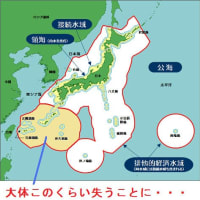
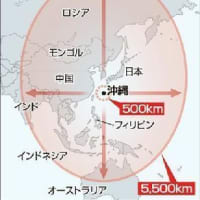
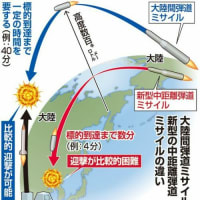
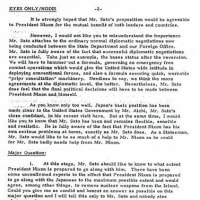
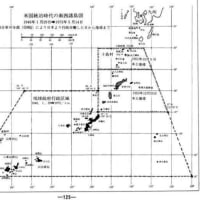
※コメント投稿者のブログIDはブログ作成者のみに通知されます